Son La Ban Buot, Chieng Yen commune, Van Ho district, included in the village covenant a ban on fishing in streams, orchid picking, and trapping wild animals. Violators must pay 20 kg of rice.
Located more than 3 km from Highway 6, Buot village used to have only a dozen Thai and Muong houses huddled together in a valley, with a large stream flowing through it, surrounded by forests. The village has no electricity, no Internet, no roads, and no medical station. People live on one crop of rice, shrimp and fish from the stream, and gathering products from the forest.
The stream that flows through Buot village has more than a dozen species of shrimp and fish, the most common being pa chat, which has a body as big as two fingers. In early summer, it rains a lot, and the stream is full of fish and shrimp. People who come back from the forest or the fields only need to scoop up a few batches to have enough for a meal. By 2010, the number of households had increased to nearly 50 with about 200 people. The fish in Buot stream were brought to the market to sell. "The fish and shrimp kept decreasing, and I couldn't even scoop up a plate if I carried that basket from one end of the stream to the other," said Ha Cong Khoa, the production team leader of Buot village.
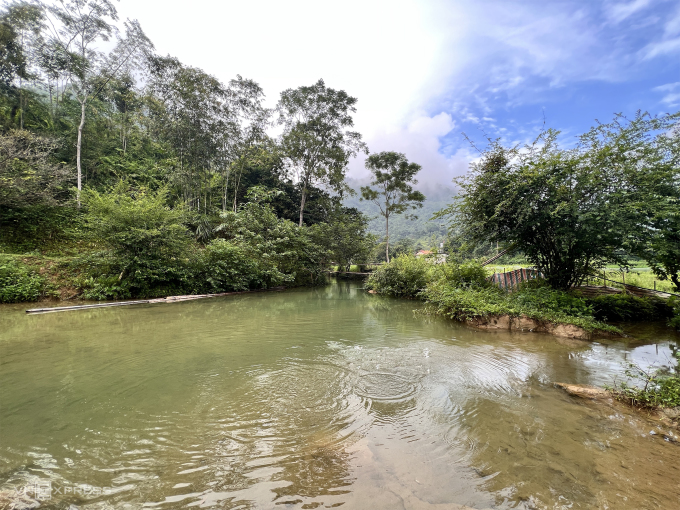
A corner of Buot stream, the stream that flows through the village about 3 km, is also an area where the villagers prohibit fishing. Photo: Hong Chieu
To protect the shrimp and fish, the village chief decided to ring the gong to summon the villagers. On a winter night in 2010, Mr. Khoa and hundreds of villagers of Buot village used oil lamps to go to the house of village chief Lo Van Nhieu. The meeting discussed the regulation that no fish could be caught within 3 km of the Buot stream, and outside that area it was allowed. Anyone who violated the rule would be fined 20 kilos of rice.
That night, some people objected, saying that the fine of 20 kilos of rice for catching a fish was too much. The mountains and forests surrounding the village made agricultural land scarce, and they had to be frugal to have enough rice to eat. But many people agreed, because if they caught and sold fish indiscriminately, the stream would have no fish or shrimp left. The final meeting agreed on the ban, which was included in the village covenant, and the families signed a commitment not to violate it.
Mr. Nhieu said the village's self-governing groups patrol regularly, mainly to remind and maintain security. Villagers do not dare to violate the law, but people from other villages still come to fish without knowing. Last year, two Mong youths from other areas were fined with rice, but later promised not to repeat the offense.
"Village affairs are public affairs, different opinions are normal. If the people support us, we can do it," said Mr. Nhieu, 58 years old, who has been the secretary and village chief for more than 20 years. Before convening the entire village, the Party cell held a meeting to discuss.
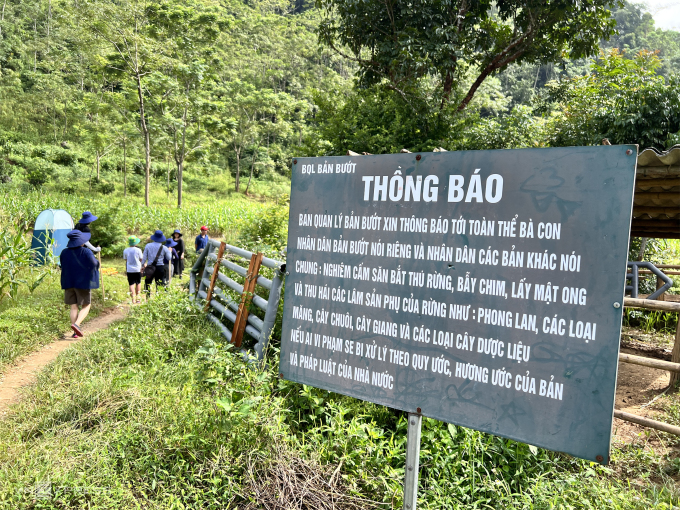
Village regulations are posted at tourist attractions, rice fields, and community houses. Photo: Hong Chieu
A few years after the ban on fishing, the Buot villagers added regulations prohibiting orchid picking and hunting wild animals to the village covenant. Surrounded by forests, part of the villagers' livelihood depends on gathering products. But outside of Buot village, more and more people from other places come to visit. Orchids and wild animals are carried by vehicles across the national highway to the lowlands. Each flower pot costs tens of thousands of dong, and picking them all will eventually run out.
In Mr. Nhieu's memory, the large trees that several people could hug gradually disappeared over many years when people from other places came to cut down trees and burn fields to grow corn. They left when the corn harvest season was over. "Because they didn't ban it, they came to take it all. Our village depends on the forest for its survival, so we have to protect it," he said, adding that in later meetings, no one objected to the ban.
In mid-2020, Buot village was connected to the national grid. Instead of relying on rice fields or going to the forest, Thai and Muong people started doing tourism to increase their income. With the support of experts, households established community service cooperatives, divided into small groups in charge of each stage, such as tour guide groups, transport vehicle groups, art groups, etc. They shared business services, maintained village covenants, and minimized competition that disrupted the village community structure.
Pa Chat fish fill Buot stream. Video: Le Anh - Hong Chieu
Thirteen years after the fishing ban, the stream is full of pa chat fish. Tourists can feed the fish, but violating the rules will be fined. The village covenant "prohibiting fishing, orchid picking, and animal trapping" is placed at the head of the stream, the cultural house, and the organic rice fields. When taking visitors on a tour, tour guides will always remind and tell the story of the village's fish conservation. Thanks to the forest conservation, Chieng Yen is among the communes with the largest forest coverage in Van Ho, about 70% in 2020.
Even though there is 3G signal, the sound of the gong from the bomb shell is still the most important means of communication in Buot village, becoming a symbol of community cohesion. Elderly people like Mr. Nhieu and Mr. Khoa believe that preserving the village tradition is preserving it for future generations, "as long as there are forests and streams, there will be livelihoods. If we eat them all, there will be nothing left in the future."
Hong Chieu
Source link


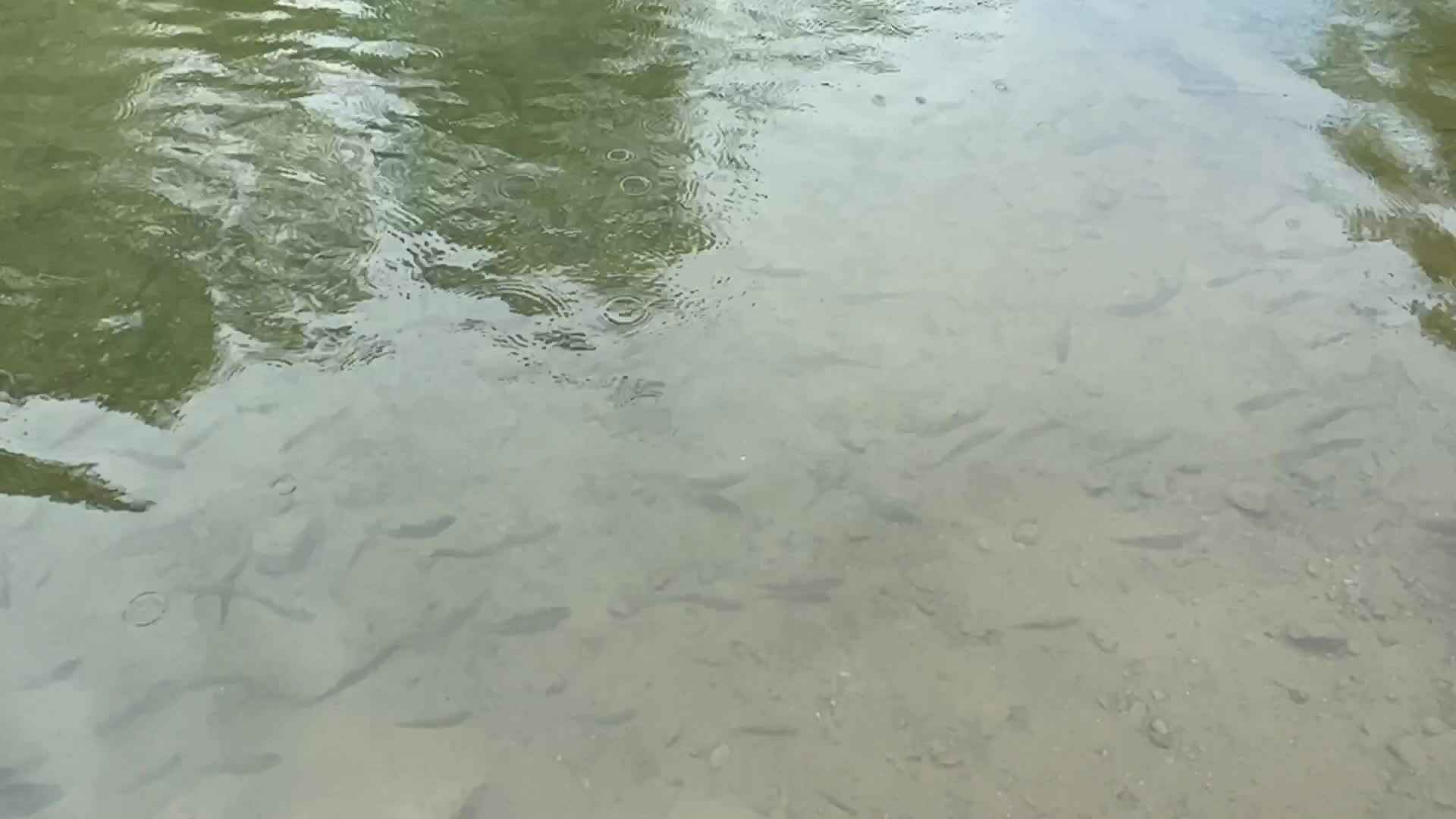






















































































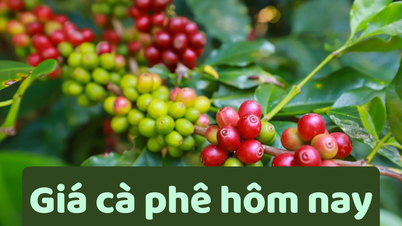






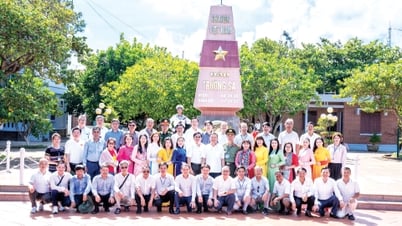














Comment (0)